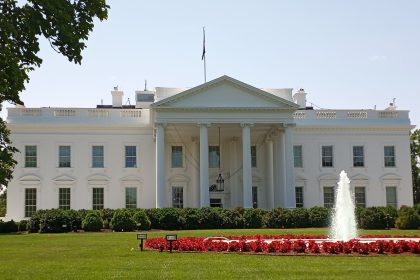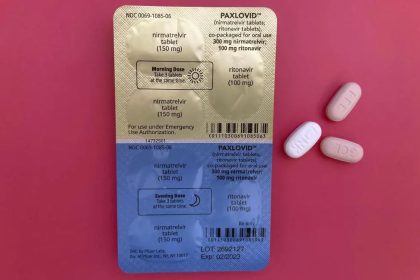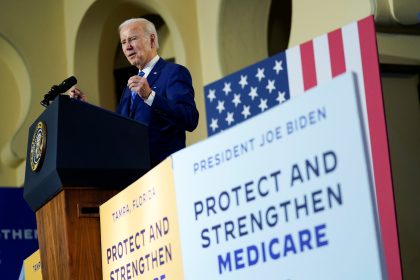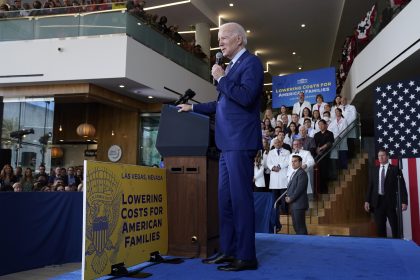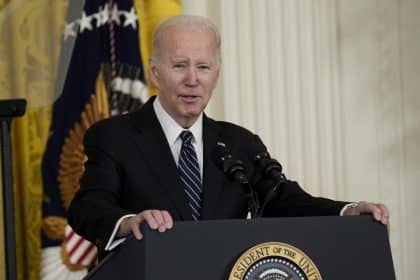Justices Uphold HHS Language on Medicare Reimbursements

WASHINGTON — Though few likely noticed given the court’s overturning of Roe v. Wade, the Supreme Court also decided a highly technical case Friday regarding how the Department of Health and Human Services calculates a class of Medicare payments.
The 5-4 ruling in Becerra v. Empire Health Foundation stems from a 2004 decision by the department to change the way the agency calculated the annual reimbursement rate paid to hospitals by the Medicare program for treating low-income patients.
In doing so, it eliminated the word “covered” from 42 C.F.R. § 412.106(b)(2)(i), effectively amending HHS’ interpretation of the phrase “entitled to [Medicare]” in a subsection of the Medicare and Medicaid Act.
What seemed like a matter of simple editing actually had a profound effect on the way HHS calculates its reimbursement to certain hospitals.
Plaintiff Empire Health Foundation challenged the 2005 rule as part of a larger challenge to HHS’ calculation of its 2008 reimbursement.
Specifically, it challenged the department’s interpretation of the phrases “entitled to” and “eligible for” to mean all patients who qualify for Medicare or Medicaid, even if those programs did not pay the patients’ hospital bills.
The district court granted partial summary judgment for Empire based on a finding that HHS did not follow correct procedures under the Administrative Procedure Act because of numerous mistakes that occurred during the notice-and-comment process.
The 9th U.S. Circuit Court of Appeals later found the department did follow the APA, but it affirmed the lower court’s decision anyway, holding the new rule was based on an invalid interpretation of the Medicare statute.
It premised its ruling on the fact it had previously ruled that the relevant part of the law was unambiguous and not open to interpretation. But that decision created a conflict with other circuit courts that had approved the regulation that the Supreme Court had to resolve.
As explained in the opinion written by Justice Elena Kagan, once a person turns 65 or has received federal disability benefits for 24 months, they become “entitled” to benefits under Part A of Medicare.
Part A provides coverage for, among other things, inpatient hospital treatment.
Medicare pays hospitals a fixed rate for such treatment based on the patient’s diagnosis, regardless of the hospital’s actual cost and subject to certain adjustments.
One such adjustment is the “disproportionate share hospital” (DSH) adjustment, which provides higher-than-usual rates to hospitals that serve a higher-than-usual percentage of low-income patients.
To calculate the DSH adjustment, the Department of Health and Human Services adds together two statutorily described fractions: the Medicare fraction — which represents the proportion of a hospital’s Medicare patients who have low incomes — and the Medicaid fraction — which represents the proportion of a hospital’s total patients who are not entitled to Medicare and have low incomes.
Together those fractions produce the “disproportionate patient percentage,” which determines whether a hospital will receive a DSH adjustment, and how large it will be.
During its deliberations, the 9th Circuit looked at the statute’s use of the phrases: “entitled to [Medicare Part A] benefits” and “eligible for [Medicaid] assistance,” and concluded the latter phrase to mean that a patient qualifies for Medicaid and the former phrase to mean that a patient has an absolute right to payment from Medicare.
Kagan disagreed, holding that in calculating the Medicare fraction, individuals “entitled to [Medicare Part A] benefits” are all those qualifying for the program, regardless of whether they receive Medicare payments for part or all of a hospital stay.
“Text, context and structure all support calculating the Medicare fraction HHS’ way,” she wrote. “In that fraction, individuals ‘entitled to [Medicare Part A] benefits’ are all those qualifying for the program, regardless of whether they are receiving Medicare payments for part or all of a hospital stay.
“That reading gives the ‘entitled’ phrase the same meaning it has throughout the Medicare statute. And it best implements the statute’s bifurcated framework by capturing low-income individuals in each of two distinct populations a hospital serves.”
Justice Brett Kavanaugh dissented, joined by Justices Samuel Alito, Neil Gorsuch and, for only the second time this term, Chief Justice John Roberts.
“Whatever HHS’ precise motivations for the 2004 change, we now must focus on the statutory text and HHS’ current interpretation of it,” he wrote. “To begin, both parties offer a dog’s breakfast of arguments about broad statutory purposes, real-world effects, surplusage, structure, consistent usage, inconsistent usage, agency deference, and the like. But this case is resolved by the most fundamental principle of statutory interpretation: Read the statute.”
Later, he sums up, “A patient was not entitled to have payment made by Medicare ‘for such days’ in the hospital if the patient by statute could not (and thus did not) have payment made by Medicare for those days — for example, because private insurance was already covering the patient’s care, or the patient had exhausted his Medicare benefits. Both statutory text and common sense point to that conclusion.
“HHS’ contrary interpretation boils down to the proposition that a patient can be simultaneously entitled and disentitled to have payment made by Medicare for a particular day in the hospital. That interpretation does not work,” Kavanaugh wrote. “And HHS’ misreading of the statute has significant real-world effects: It financially harms hospitals that serve low-income patients, thereby hamstringing those hospitals’ ability to provide needed care to low-income communities. In my view, HHS’ 2004 interpretation is not the best reading of this statutory reimbursement provision.”
Dan can be reached at [email protected] and @DanMcCue


















